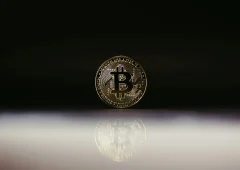Brazil’s Central Bank Pushes for Crypto Regulation Amid Surge in Stablecoin Use
09.02.2025 12:00 2 min. read Alexander Zdravkov
Brazil's central bank president, Gabriel Galipolo, recently spoke at a Bank for International Settlements event in Mexico City, highlighting the surge in cryptocurrency use within the country.
Over the past few years, Brazil has seen a significant increase in crypto transactions, with stablecoins making up approximately 90% of the activity. These digital assets, pegged to stable values like the U.S. dollar, are increasingly being used for everyday purchases and cross-border transactions, unlike their more volatile counterparts.
However, despite the positive growth, Galipolo raised concerns over the challenges of regulating this rapid adoption, especially with stablecoins. The lack of transparency in many of these transactions, particularly regarding taxes and money laundering, complicates regulatory efforts. As more of these transactions occur in retail and international markets, regulators face growing difficulties in enforcing financial oversight.
In response to these challenges, Galipolo pointed to Brazil’s Drex initiative as a potential solution. Though often described as a central bank digital currency, Drex is designed to facilitate credit through collateralized assets. The project aims to lower borrowing costs and improve access to secured financing, areas that have historically been problematic in Brazil. By utilizing distributed ledger technology, Drex will streamline wholesale interbank transactions and enhance efficiency in the lending market.
Galipolo also highlighted the growing success of Pix, Brazil’s real-time payment system. He suggested that Pix’s programmability could allow it to integrate with global instant payment networks, improving cross-border transactions and reinforcing Brazil’s position as a leader in digital payment infrastructure.
Additionally, the Brazilian central bank’s proposal to ban stablecoin withdrawals to self-custody wallets is still under public consultation until February 2025, raising further concerns about regulatory control over the growing crypto market.
-
1
Trump’s 2024 Crypto Earnings Top $58 Million—DeFi Stake Drives Most of the Haul
16.06.2025 9:00 2 min. read -
2
Tron Sets Sights on Wall Street Through Reverse Merger
17.06.2025 7:00 1 min. read -
3
Tether Now Among World’s Largest Holders of U.S. Treasuries, CEO Says
21.06.2025 9:00 1 min. read -
4
Big Funds Sell $51B in May, But Buybacks Cushion U.S. Stock Market
20.06.2025 10:00 2 min. read -
5
AI Revolution Could Send Nasdaq Soaring, Says Market Expert
19.06.2025 14:00 1 min. read
Robinhood Faces Scrutiny from European Bank Over Tokenized Stock Offerings
Lithuania’s central bank has reached out to Robinhood for further details regarding its newly launched stock token products, following a public distancing by OpenAI from the initiative.
USA Imposes Tariffs on Multiple Countries: How the Crypto Market Could React
As President Trump accelerates his tariff strategy ahead of the August 1 deadline, new White House letters reveal formal trade warnings sent to multiple nations, including Tunisia, Cambodia, Indonesia, and others.
EU Grants MiCA Licenses to 53 Crypto Firms: Here Is the Full List
The European Union has granted a total of 53 licenses under its MiCA (Markets in Crypto-Assets) regulatory framework, marking a major step toward harmonized crypto oversight across the region.
UAE Regulators Dismiss Toncoin Residency Rumors
United Arab Emirates authorities have formally denied reports linking Toncoin (TON) ownership or staking to long-term visa eligibility, calling the circulating claims inaccurate and misleading.
-
1
Trump’s 2024 Crypto Earnings Top $58 Million—DeFi Stake Drives Most of the Haul
16.06.2025 9:00 2 min. read -
2
Tron Sets Sights on Wall Street Through Reverse Merger
17.06.2025 7:00 1 min. read -
3
Tether Now Among World’s Largest Holders of U.S. Treasuries, CEO Says
21.06.2025 9:00 1 min. read -
4
Big Funds Sell $51B in May, But Buybacks Cushion U.S. Stock Market
20.06.2025 10:00 2 min. read -
5
AI Revolution Could Send Nasdaq Soaring, Says Market Expert
19.06.2025 14:00 1 min. read


